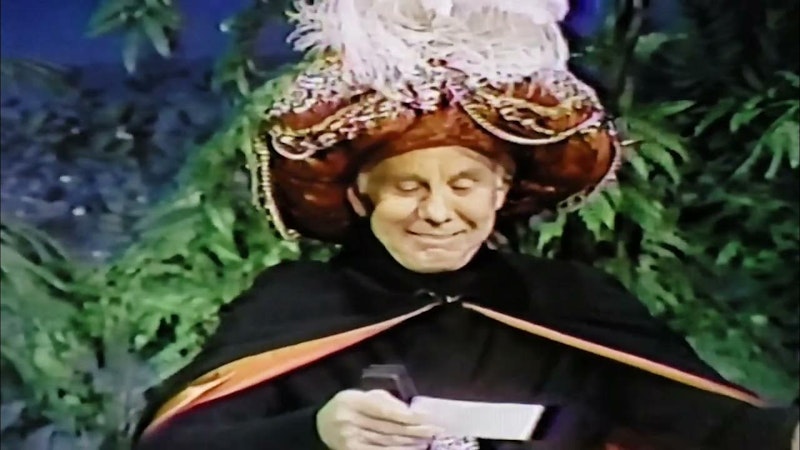I hope Peggy Noonan continues writing essays for The Wall Street Journal every week for many more years, and since there’s no retirement age for pundits, or politicians, it’s likely, unless the leftward-tilt of the Journal destroys its editorial pages. Unlike contemporaries who’ve been in the business for a lifetime, like The New York Times’ Thomas Friedman, Noonan’s columns rarely appear like they’re dashed off at the last minute, and though her fastball has ticked down, sometimes resulting in strange whimsy, I won’t stop reading her.
At 74, it’s true that Noonan is rooted more in the past than the present, but I don’t mind that: nothing wrong with a column that conjures up a now-anachronistic America when citizens—and immigrants not certified but not vilified as they’ve been since George W. Bush left office—attended holiday parades or county fairs fully-clothed and violence was rare. That’s kind of gooey—I like fairs and bunting—but not half as much as Noonan’s contribution last week, “America Is Losing Sight of Its Political Culture.” Her column is about Trump, his well-documented narcissism and refusal to “play by the rules” (one of his attributes, I think).
But she misses the point: America “lost sight of its political culture” decades ago. Three examples: in 1976, after presidential candidate Jimmy Carter told Playboy that he’d “committed adultery many times in my heart,” the media went full-tilt sensationalistic (highlighting that “juicy” tidbit from a 12,000-word interview). Jimmy was a lousy president, but who cared if he acknowledged that he found women other than his wife attractive? And in 1994, Bill Clinton, the model for today’s Trump, answered a question on MTV about the kind of drawers he preferred, boxers or briefs. He played saxophone on The Arsenio Hall Show in 1992. More seriously, Clinton in 1998 bombed a pharmaceutical factory in Sudan, erroneously claiming it was producing chemical weapons, to get the Monica Lewinsky scandal off the front pages of newspapers (when front pages were still relevant). And LBJ held meetings with advisers while taking a shit, as well as whipping out his dick (he called it “Jumbo”) in the Oval Office.
Noonan writes: “I’m going to say something old-fashioned. It’s a thing we used to say a lot but then we got bored with it or it seemed useless. ‘We don’t do that.’ If we don’t say it we’ll forget it, so we have to keep it in front of mind.”
She’s reacting to Trump’s absurd celebration of the Army’s 250th anniversary in D.C. last Saturday (also his birthday), a speech he gave at Fort Bragg that was partisan, took a swipe at Biden, “as if he was enlisting [the soldiers in attendance] to join Team Trump,” and his duel with Gavin Newsom in California over the ICE demonstrations (in the background now because of Israel and Iran).
“We don’t do that,” she writes. In fact, “we” do that all the time, whether in politics, entertainment, sports or the media. Behavior that’s considered grotesque, crude or boorish isn’t unique to 2025.
And then her last paragraph contradicts all that “we don’t do that” baloney. “President Bush had scheduled a trip to L.A. around the time of the [Rodney King] riots. He was going to give the Medal of Freedom, for a lifetime of entertaining and informing America, to the great and about-to-retire Johnny Carson.” The “optics” weren’t right, and Carson was given the award at the White House a few months later. As Noonan surely knows, Presidential Medals of Freedom are shelled out as door prizes to anyone the current president likes or hopes to get favors from. They’re meaningless, just as the Nobel and Pulitzer Prizes are.
My beef, in context with “we don’t do that,” is her comment that Johnny Carson spent a lifetime entertaining and informing America. Carson was never a favorite of mine—too bland and safe—but I’ll concede that millions of American found him “entertaining.” But he didn’t “inform America”; that wasn’t his job or preference. The news-readers—anchors—at CBS, ABC and NBC did “inform” people every night about events that transpired since the afternoon newspapers, and despite the bias of, say Walter Cronkite (who got worse as he aged), it was a habit to tune in. Bush’s original plan to show up on Carson’s late-night show was, although not as flashy, a precursor to this century’s zoomed-up politics-as-entertainment.
We do that.
—Follow Russ Smith on Twitter: @MUGGER2023

